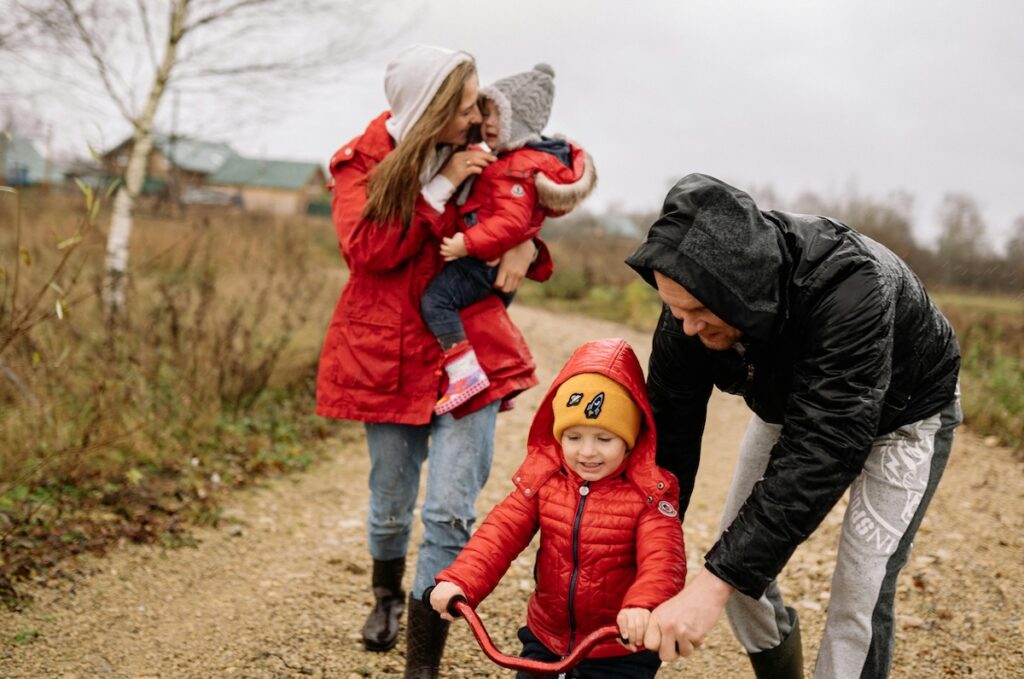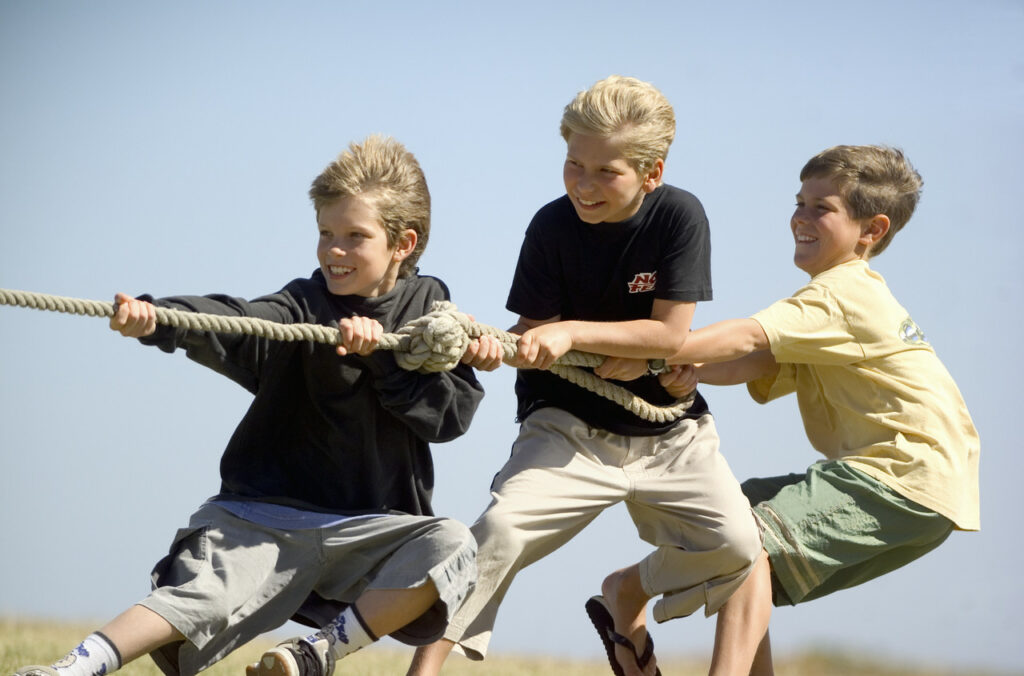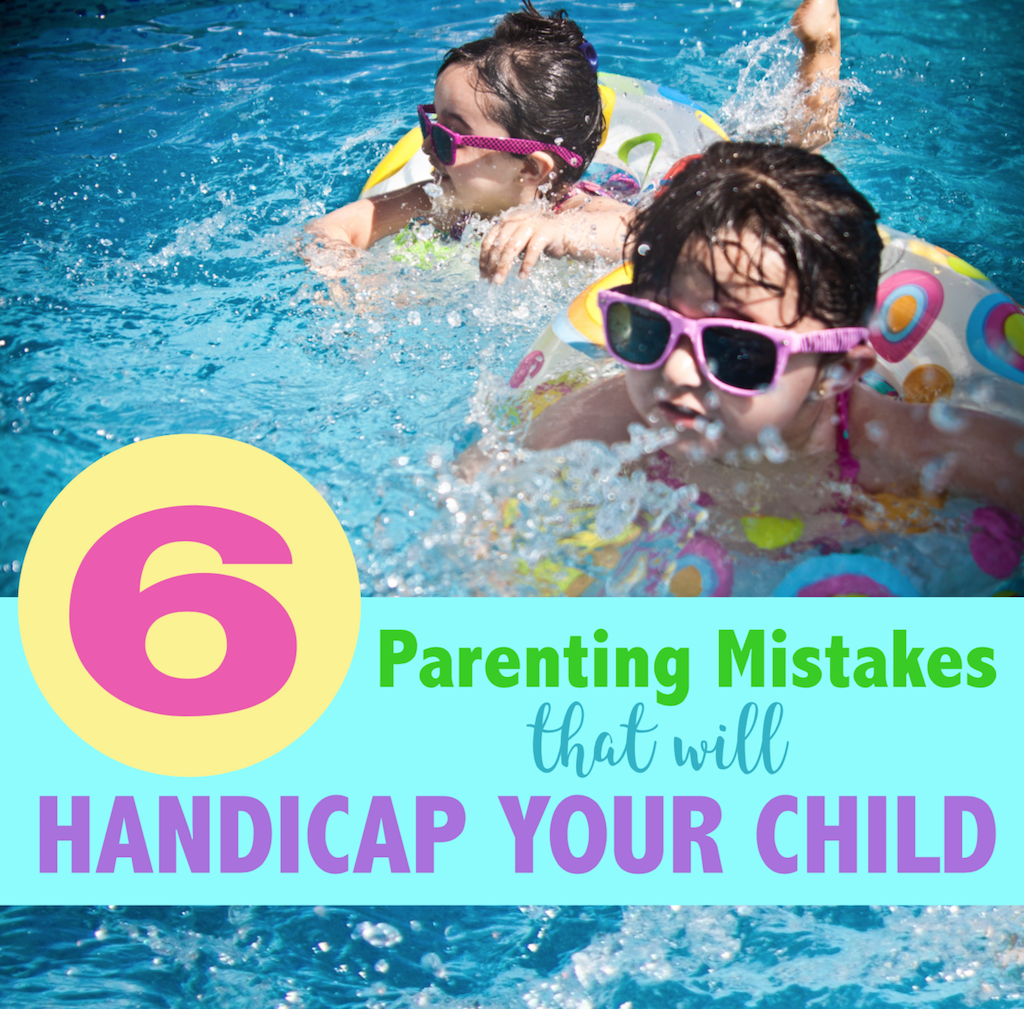EP 94: Raising Kids Who Don’t Rebel (Is that even possible?)

This week I’m answering a question from a listener who’d like to know how to raise kids who won’t resent your family rules or rebel against them. Is that even possible? Listen in on Episode 94 as we discuss what parents can do to reduce the risk of rebellion.
Show Notes
VERSES CITED:
- Philippians 1:6 – “…he who began a good work in you will carry it on to completion….”
- 1 Corinthians 13:13 – “But now abide faith, hope, love, these three. But the greatest….”
- Hebrews 10:23 – “Let us hold fast to the confession of our hope without wavering….”
- Hebrews 11:6 – “…without faith it is impossible to please God.”
- 1 John 4:16 – “God IS love.”
- 1 John 4:19 – “We love because He first loved us.”
- John 13:35 – “By this will all men know that you are my disciples, if you love one another.”
- Galatians 5:22 – “But the fruit of the Spirit is love, joy, peace, patience, kindness….”
- Proverbs 3:11 – “…whom the LORD loves He reproves, even as a father ….”
- Proverbs 13:24 – “He who spares the rod hates his son, but he who loves him….”
- Deuteronomy 12:32 – “See that you do all I command you; do not add to it or take away from it.”
- Proverbs 30:5-6 – “Do not add to His words, lest He rebuke you and prove you a liar.”
- Revelation 2:18-19 – “…If anyone adds to them, God will add to him the plagues….”
- John 2:1-11 – [story of Jesus turning water into wine at the marriage feast in Cana]
- Ephesians 5:18 – “Do not get drunk on wine, which leads to debauchery. Instead….”
- James 1:5 – “If any of you lacks wisdom, you should ask God, who gives generously to all….”
- Isaiah 40:11 – “He tends His flock like a shepherd … He gently leads those that have young.”
- Matthew 11:28 – “Come to Me, all who are weary and heavy-laden, and I will give you rest.”
- Psalm 127:1-5 – “Unless the LORD builds the house, they who build it labor in vain….”
RELATED LINKS:
- 50 Great Books to Read Aloud to Your Kids
- 9 Benefits of Reading Fiction
- Raising Kids Who Love to Read
- A Few Favorite Board Games
- Praying for Yourself
- Praying for Your Children
- Praying for Your Teens
- Praying for Your Adult Kids
- Pancakes on the Porch (I will post link soon)
- How Our Family Flew to Europe for Free
STAY CONNECTED:
- Subscribe: Flanders Family Freebies -weekly themed link lists of free resources
- Instagram: @flanders_family – follow for more great content
- Family Blog: Flanders Family Home Life – parenting tips, homeschool help, printables
- Marriage Blog: Loving Life at Home– encouragement for wives, mothers, believers
- My Books: Shop Online – find on Amazon, at Barnes & Noble, or through our website

Raising Kids Who Don’t Rebel
FULL TRANSCRIPT FROM EPISODE 94
Hello, friend. Welcome to Episode 94 of Loving Life at Home. The topic of today’s episode – raising kids who don’t rebel – comes from a letter I recently received from a listener. She writes:
How do you raise your kids such that when they grow up, they don’t envy their peers for being exposed to other kinds of things (which are not good for them)? I’m in my 20s and definitely not planning to send my kids to a regular school, but I wonder if they’ll resent it when they grow up, rebel, or even go a bit wild when they get “freedom” in college etc. Any advice would be much appreciated xx –
In other words, this young mama – I’m assuming she has children already, but maybe she’s just planning ahead. I certainly did a lot of that when I was her age.
But like most mothers, she wants to raise her children according to her convictions but would prefer to do it – if possible — without triggering feelings of resentment or outright rebellion against her parenting choices.
My dictionary defines rebellion as “the action or process of resisting authority, control, or convention.”
So I hate to be the bearer of bad news, but every one of us is born with a tendency to rebel in one way or other. You are no exception, and neither are your children. Sometimes that rebellion is open and vocal and violent. Sometimes it can be quiet and hidden and subversive. But in the broadest sense of the word, we all rebel because, at some point or other in our life — we all resist authority or resent being told what to do.
In Our Nature
Even if you were a perfect parent and never made any mistakes in raising your children, it would be no guarantee that they’d never, ever, ever resent your parenting decisions or resist your authority at least once in their growing up years, nor would provide any certainty that they won’t go a bit wild, given the opportunity to do so.
We know this is true, because God the Father was (and is) THE perfect parent, yet Adam and Eve resented His rule and deliberately defied His instruction regarding the tree of the knowledge of good and evil.
And sadly, they passed that same sin nature down to all of us, and we all follow their poor example in resisting God’s authority in our lives and rebelling against His rules, though some do it more brazenly than others.
Some people are like the prodigal son. They sin in scandalous and public ways that are apparent to all. Others are like the older brother, whose besetting sins – things like pride, jealousy, bitterness, and entitlement — are less obvious, but still sin nonetheless.
As I’ve pointed out before, parenting is not like a recipe where, if you mix just the right ingredients in just the right amounts and follow all the instructions to a T, you’ll get precisely the outcome you’re shooting for. There are no such guarantees in parenting – because we are not dealing with inert ingredients, but with unique individuals, each with their own unique opinions, goals, desires, and proclivities which may or may not line up with the hopes and dreams their parents entertain on their behalf.
As they say, you can lead a horse to water, but you can’t make him drink. Of course, the fact a horse’s owner can’t force him to drink does not absolve him of the responsibility of regularly and repeatedly leading that horse to water.
And the same is true for raising children and leading them to Christ. When it comes to quickening their hearts or causing faith to grow in their souls, parents are powerless, but we still have a responsibility to faithfully point them to Jesus every chance we get. And to pray expectantly that God will complete the good work He began in the lives of our children the moment He placed them in our family, just as He’s promised in Philippians 1:6 to do.
We must entrust the work to Him, but we can still purposefully try to boost our kids up on God’s workbench for easy access and pray that He will give them the grace and good sense to remain there.
As for other things parents can do to minimize – not to erase, but to minimize – the risk of rebellion in their children, I offer the following seven suggestions:
7 Ways to Reduce the Risk of Rebellion
1. Cultivate a loving home
1 Corinthians 13:13 says,
“But now abide faith, hope, love, these three. But the greatest of these is love.”
And that is saying a lot, since faith and hope are both also so important. Hebrews 10:23 tells us, “Let us hold fast to the confession of our hope without wavering” and Hebrews 11:6 tells us “without faith it is impossible to please God.”
Yet, Paul says that, as important as faith and hope are in the life of a believer, love is even greater.
This makes sense, though, because 1 John 4:16 tells us, “God IS love.” And 1 John 4:19 says, “We love because He first loved us.” Jesus even said our love will help people recognize we are Christian: “
By this will all men know that you are my disciples, if you love one another.” (that’s John 13:35)
Also, love is the first attribute Paul listed in Galatians 5:22 when he was discussing the fruit of the Spirit. I once heard it preached, nearly 50 years ago, that love is the primary fruit and all the attributes on the list that follow are simply expressions of the first. Donald Barnhouse believed the same thing. He wrote:
- Love is the Key.
- Joy is love singing.
- Peace is love resting.
- Patience is love enduring.
- Kindness is love’s truth
- Goodness is love’s character.
- Faithfulness is love’s habit.
- Gentleness is love’s self-forgetfulness.
- Self-control is love holding the reigns.
Isn’t that a beautiful word picture? That is my goal – that my children know I love them and – even more importantly – that they know God loves them. And to drive home those truths, I want my love for them to reflect His love for them as accurately as possible by His empowering grace.
Sadly, we live in a culture that often conflates love with permissiveness. If you love me, you’ll do what I want. Don’t make that mistake. You can love your child without approving, endorsing, or validating everything your child says or does or acquiescing to his every demand. Which brings me to my second point: If you want to minimize the risk of rebellion, you have to…

2. Correct your child when he does wrong.
The Bible makes it clear that sin has consequences, and your homelife needs to demonstrate and reinforce that truth.
Proverbs 3:11 says,
“My son, do not reject the discipline of the LORD or loathe His reproof, for whom the LORD loves He reproves, even as a father corrects the son in whom he delights.”
And in Proverbs 13:24 we read, “He who spares the rod hates his son, but he who loves him is careful to discipline him.” Now whether this verse is an endorsement of corporal punishment or whether the word “rod” is being used metaphorically is another episode for another day.
But the point remains that loving parents do not allow their children to act out in sinful, selfish ways without consequence, but are careful to address misbehavior swiftly and to do all they can to teach them right from wrong.
Unfortunately, some of the child-rearing philosophies that are currently in vogue have convinced gullible parents that they will do irreparable damage to their children if they try to enforce any standard of behavior upon them instead of simply validating, affirming, and giving space to all their “big feelings” and allowing them to express those feelings in whatever way seems authentic to the child, no matter how out-of-control or annoying the outburst is to everyone else in the general vicinity.
I’ve seen that kind of parenting philosophy in action, and it’s utter nonsense. Also, it’s exhausting. No wonder so many parents insist they can’t handle more than one or two kids – and onlookers decide to forgo having children all together – if that’s brand of child-training they choose.
It ultimately produces children NOBODY enjoys being around, including the parents themselves, which is a travesty – and an entirely avoidable one, at that.
Sadly, schools are adopting the same philosophy, which has led to absolute chaos in the classroom. Back when I was in school, when a student was sent to the principal’s office, he got a paddling. I was never on the receiving end of such an office visit, but I have it on good authority that such paddlings were not a pleasant experience.
Contrast that with what passes for discipline in some schools today. My teacher-friends tell me that when a student’s behavior becomes too violent or disruptive or obnoxious in class nowadays, they get sent to the principal’s office, too. Only, instead of receiving a paddling, now the little troublemakers are given a piece of candy and a comfy seat in a quiet room where they can calm down for a quarter hour before being sent back to class.
Some kids spend the entire day trotting back and forth to the principal’s office, presumably to indulge a sweet tooth or to get out of having to sit through any lectures or pop quizzes or any other schoolwork the rest of the class is required to do. I don’t know how they ever learn anything.
The fact is, you normally get more of whatever you reward, so if misbehavior is rewarded with candy and a break from schoolwork, more and more kids will misbehave. And if throwing temper tantrums in the check-out line at the grocery store gets you a candy bar or some extra coddling or Mom’s undivided attention while you explain all your big feelings to her, then such temper tantrums will become more and more prevalent rather than fewer and further between.
Then, eventually, when that child grows up and has to drive a car or (depending on the school) go to college or hold down a job, he is going to be in for a rude awakening when the traffic cop or university professor or his new boss doesn’t indulge his temper tantrums or validate his big feelings the way mama did and he loses the job, flunks out of class, gets a traffic ticket, or maybe even winds up in jail.
Which, again, is why it is so important that parents teach their children early that sin has consequences by letting them experience some real consequences for their own willful disobedience while they are still young and impressionable and the stakes are still low.

3. Come up with attractive alternatives to whatever you forbid.
Don’t just be known for what your family doesn’t do. Be known for what you DO do.
I’ll tell you a funny story to illustrate what I mean. Earlier this summer, I attended a 6-week book club with several women from my church whom I had never met before. Our church has 3 different worship services – we’ve always gone to the 8 AM service, so it’s not surprising there are lots of church members I’ve never met.
At any rate, the first week of the book club, I was one of the first ladies to arrive, and when the hostess found out I have 12 children, she does what most people do — they multiply the schedule and number of extra-curricular activities their one or two or three children do by a factor or twelve or six or four (respectively) and declare, “I don’t know how you keep up with that many! I’m barely able to keep my head above water as it is.”
So, I tried my best to assure her than I’m not doing multiples of the same thing she’s doing, as that really would be impossible. There is simply no way a mother of 12 can juggle five or six different individual activities for each of a dozen children like the mother of an only child might be able to manage.
So for the rest of the summer, that hostess would introduce me to newcomers as, “This is Jennifer. She has twelve children… but that’s not like it sounds, because they don’t DO anything.”
Which just struck me as so funny, as it would anybody who knows our family and how active we are.
While it is true that we DON’T do team travel sports or daily car pickup lines at school or slumber parties—and we’ve also avoided most other outside activities that would take each member of the family in a different direction every night of the week—there are plenty of things we DO do. And we usually do the together, or at least we did when our children were younger (before so many of them grew up, got married, and moved out of our house).
Some of the stuff we do might sound pretty boring to somebody used to being entertained all day long and driven from one team practice or private lesson or social club to the next – but these activities have done so much to strengthen our family bonds and to create lots of great group memories:
- We read lots of great books together –For years we all gathered for story time just before bed. Doug would read first from the Bible (or from a Bible story book when the children were really young) and then from some favorite novel – maybe CS Lewis’s Chronicles of Narnia or Lloyd Alexander’s Chronicles of Prydain or J.R.R Tolkien’s Lord of the Rings or some E.B. White or Laura Ingalls Wilder or Ralph Moody or LM Montgomery or contemporary writers like Godon Korman (we especially love his books Schooled and Restart).
I’ve published a list of 50 of our family’s favorite read-alouds on my website, which I’ll include in today’s show notes. I never really appreciated what powerful lessons could be learned through fiction before I met and married my husband, but I’m a firm believer in the value of reading such books now. And I’ll link a post in the show notes on just a few of the benefits we’ve reaped by making reading such a big part of our family life. - But our family also plays together – board games, outdoor games, sports – most recently, we’ve taken up pickleball and have been practicing that together regularly. About 11 family members were on the courts bright and early yesterday morning to play before the crowds showed up. The little ones spent most of that time bouncing and tossing and chasing after balls on an empty court while their dads and my husband worked up a sweat playing some serious matches. Several more members of the family would’ve joined them, too, had yesterday not been our first day back at co-op, which happens to meet as a church right beside the pickleball courts. And when we saw how drenched their T-shirts were, we knew we’d made that right decision not to participate. But any other day, we’d be in too! Because, as they say, “The family who plays together stays together.”
- Equally true is “The family who PRAYS together stays together. And that is something else we’ve done throughout the years. Not just at mealtimes, asking God to bless our food to nourish our bodies, but also whenever we need wisdom in making a decision that affects the entire family, such as moving to a new neighborhood or participating in a TV documentary or starting a home church) or when we find ourselves in the midst of some family crisis – like when I was diagnosed with cancer last year, and the family gathered around me to pray for healing, or when our sweet little grandbaby had to be intubated and taken by chopper to Dallas and we weren’t sure if he would live or die. By the way, God graciously granted those requests. Our grandson recovered fully from his ordeal with no lingering effects, and I just had my 6-month follow-up a couple of weeks ago, and there is no sign of remaining or recurring disease. So we are all rejoicing together and praising and thanking God for that, as well.
- We also regularly attend church together and eat together, although the number of family members crowding onto the pew or sharing our mealtimes has been steadily shrinking as our kids grow up and move away and start having families of their own. But they come back often, bringing those reinforcements with them, and I so love having the whole crew together. We got to enjoy several such meals over the weekend with 30+ people gathered around the table. But the most memorable was a pancake breakfast our kids prepared themselves and served on our front porch. I’ll try to post a couple of pics to Instagram and link them in the show notes.
We had such a delightful time – there was a nice cool breeze and plenty of seating and no sticky drips or fingerprints on the rugs and furniture and floors inside. I love it! Family meals are so important for children as they develop, and the hectic schedule many families keep (our own family sometimes falls into that category these days more often than I’d prefer)– but it takes a toll, not only on health, because homecooked meals are replaced by fast food for the sake of convenience, but also on family ties, because you’re not gathered together, sharing the details of your days –good or bad – and rejoicing or sympathizing and encouraging one another as you can do when everybody is eating together.
- We even play organized sports, but we do the homeschool variety, where we all congregate for 6-8 weeks of soccer or baseball or group tennis lessons, but only for a couple of hours once a week, with parents coaching and all ages playing simultaneously on separate areas of the fields or courts. And then we’re done. The kids even took gymnastics for a few years, but again it was for homeschool classes which were pretty low key and accommodated a wide range of ages all at once.
- Our family also challenges one another. As I mentioned last week, we love competing against each other, although we normally do it in a good-natured way: family ping-pong or pickleball or arm-wrestling tournaments, push-up or chin-up or wall-sitting competitions, bicycle or foot races, rousing rounds of bananagrams or abduction or zombie tag or the hat game. Some of our kids have taken up the mantal and begun sponsoring competitions for their siblings with generous prizes. I plan to tell you about the latest one of those next week – a family shark tank competition that took place over the weekend and was a huge success on every level.
- Beyond that, our family also travels together. A lot. We’ve taken countless road trips over the years, many of them all packed into a 12- or 15-passenger van for two or three weeks. My 87-year-old mother has even accompanied us on some of those trips. And we’ve backpacked Europe together several times with half a dozen or more kids in tow– including nursing babies.
So, when that summer book club hostess told all her friends that the only reason I could keep my sanity with twelve children was because I never DO anything with them, that didn’t paint a very accurate picture of the homelife I’ve always known and enjoyed, but I let her comment slide the first few times she said it, because I understood what she really meant and figured the other moms there did too. I did eventually get to clarify, because several newbies started asking questions, and I was glad for an opportunity to set the record straight.
But let’s get back to that original letter I’m trying to answer. The young mom who wrote it was concerned her children might someday resent not being allowed to do things that their peers got to do.
This part of her question is a little vague. I don’t know if she’s doesn’t want her kids listening to secular music or playing video games or wearing two-piece bathing suits. OR if she means she plans to outlaw pornography and drugs and premarital sex.
The fact is, there’s a wide range of behaviors different parents want their children to avoid for a wide variety of reasons.
Obviously, the drugs, porn, and promiscuity would probably have far more serious consequences than the pop music, pac-man, and tankinis.
But in terms of the question at hand, the particulars aren’t important. The question is, will her children eventually come to resent those family rules, and the answer is yes, that’s a real possibility.
But their resentment – real or imagined — shouldn’t keep her from doing what she thinks is right in their upbringing.
One of the things our family DIDN’T do was slumber parties. Of course, there is nothing morally wrong with hosting or attending a slumber party – nor are there any Biblical commands I can think of against doing so. But having attended multiple slumber parties myself as a child and knowing the kind of foolish and sometimes dangerous behavior that transpired after the parents turned in for the night, and how that kind of behavior could easily escalate in present days, neither I nor my husband was comfortable letting our kids attend slumber parties. Because even when you know and trust the adults involved 100%, you don’t necessarily know all the kids who are attending or their friends (of both sexes) who sometimes show up after parents are asleep.
So we’d drop our kids off at the beginning of the party but pick them up before bedtime so they could sleep in their own beds at home. And I remember one of our daughters being very disappointed about not getting to stay the whole night – she may even have felt a bit resentful and deprived at the time. But years later, she came home from college and said, “Oh, mama. I am SO GLAD you never let me attend slumber parties growing up and always insisted I come home at bedtime. I have friends now who’ve told me about stuff that happened at the slumber parties they attended, and it’s taken them years to recover. I’m so thankful I was spared from that sort of thing.” So she didn’t much like the rule as a kid, but she’s grateful her dad and I stuck with the plan now that she’s an adult.

4. Differentiate between Biblical commands and family preferences.
Things such as lying, stealing, and sex outside of marriage are all clearly forbidden in Scripture, whereas we are given a lot of leeway in more subjective areas like diet, clothing, and entertainment.
If you want your children to avoid eating sugar, forgo video games, dress conservatively, and stay off social media, that is fine. But be careful not to go beyond scripture by equating such preferences to Biblical commands.
There is nothing morally wrong with eating a cookie or owning a cell phone or wearing blue jeans or using mascara, and you don’t want your kids thinking that anybody who does such things is somehow guilty of sin (and treating them that way) or feeling inordinate guilt for doing something when they grow up and leave home that the Bible doesn’t condemn as sin.
We read in Deuteronomy 12:32,
“See that you do all I command you; do not add to it or take away from it.”
And Proverbs 30:5-6 echoes this thought,
“Every word of God is flawless; He is a shield to those who take refuge in Him. Do not add to His words, lest He rebuke you and prove you a liar.”
Then Revelation 2:18-19 takes this principle even further:
“I testify to everyone who hears the words of prophecy in this book: If anyone adds to them, God will add to him the plagues described in this book. / And if anyone takes away from the words of this book of prophecy, God will take away his share in the tree of life and the holy city, which are described in this book.”
So, as you see, it is serious business to go beyond what Scripture teaches – weighing your children down with burdensome requirements too heavy to bear just as Jesus condemned the Pharisees for doing.
But the other extreme is also dangerous – when we ignore God’s clear commands on a topic just because it has become politically incorrect to uphold such principles.
By way of example, our family chooses not to drink alcohol. But the Bible makes it clear that Jesus and His followers all drank wine. In fact, turning water into wine was the first recorded miracle Jesus ever performed (in John 2:1-11).
So we’ve been careful to explain to our kids that, while it is not a sin to drink alcohol, the Bible does command us (in Ephesians 5:18) not to get drunk. And we think the easiest way to make sure we don’t get drunk is not to drink at all. Plus, alcohol can cause all sorts of other health problems, especially for diabetics (of which we have three) – and some people are more susceptible to alcoholism than others, and you may not know until it’s too late whether you’re susceptible or not.
So even though we have the freedom in Christ to drink in moderation, we think the most prudent choice is not to imbibe at all, so that is how we live with very rare exception. And it’s the standard we expect from them, as well, as long as they are living under our roof. Once they’re adults and leave home, they’ll have to decide for themselves whether and how much they will drink, but our opinion on the matter isn’t likely to change.

5. Consider your child’s perspective.
When they come to you wanting to talk about something that is weighing on their heart, learn to listen without reacting or becoming defensive. Don’t immediately jump to telling them what they did wrong in a certain situation or what needs to be done to fix it or how they should feel about it or what they should have said or done in a given circumstance. Instead, be patient and let them get the whole story out. Then ask a few questions. Dig down to discover the root of the issue and see if you might be able to guide them to a reasonable solution rather than just telling them what you think they need to do.
This is especially important for older teens and young adults. Don’t keep talking to them as if they are toddlers. Never condescend. Speak to them with the same courtesy and patience you would use in addressing a respected colleague.
By way of example here, when my oldest two reached junior high age, they started lobbying to go to school instead of homeschooling. Of course, as a mother who had been homeschooling them all their lives, I could’ve gotten my feelings hurt by this sudden change of heart, but instead, I just asked questions.
We lived directly across the street from the middle school they were hoping to attend – the same school many of their little neighborhood friends went to. I figured that was what put public school on their radar, so, instead of becoming defensive, I asked them what it was that most appealed to them about going to school instead of doing lessons at home.
Without batting an eye, they told me they wanted a summer vacation and wanted to eat lunch with all their friends. At that time, we were homeschooling year-round, and the idea of having lots of time away from the schoolbooks all summer long really appealed to them. So I made a counteroffer – what if we took a break from lessons over the summer, as well? They thought that sounded simply awesome. So that’s what we did. We eventually added basics back in during the summertime – at least when we weren’t traveling and nothing else was going on – but we’ve continued to take a break from science and history and language arts during the summer ever since.
As for eating lunch with their friends, I explained the fact that, at school, different classes go to the cafeteria at different times, and unless you happen to be in the same grade and in the same class as all the friends you want to eat with, being at the same school was no guarantee you’d even see them at lunch, much less get to eat with them every day. So we started inviting those friends over to eat with us on the weekends, which scratched that itch as well.
When your children are little, it’s important that they learn to obey promptly. Their life may depend on it. If you see a big truck come barreling down the street your child is about to cross, and you yell “Stop,” you want him to mind you without argument or hesitation. Obey first; ask questions later.
But as your kids get older, it becomes more important that they understand the reasons behind the rules. Not only do you need to explain what you expect them to do, but also why. Like our kids with the alcohol question. If they just assumed we don’t drink because the Bible says not to, then once they found out otherwise, they might be inclined to toss that and a good many other family rules out the window, possibly to their detriment.
So we discuss with them the reasons behind our decisions, and if it is not something expressly forbidden in scripture, we give them all the facts and tell them they’ll have to make their own decision regarding that thing when they are adults with families of their own.
Which brings me to my next tip for minimizing the risk of rebellion, which is to…

6. Confer new freedoms with added responsibilities
Responsible adulthood is something our kids grow into over time. It doesn’t just magically happen the moment they turn 18 or 21. It’s something you begin preparing them for long before those benchmark birthdays.
As they get older, they should gradually take on more and more responsibilities. But they should also gradually be given greater and greater freedoms. It’s like slowly releasing the line or spooling out the string for a kite. It’s much less likely to break away if you don’t try to hold it too tightly.
This is why helicopter parents do their children such a disservice. By micromanaging every aspect of a child’s life, you keep him from ever learning to do things for himself. Whether they’re learning to walk or climbing a tree or building a bookshelf or doing a science experiment or auditioning for a play or applying for a summer job, we need to give our children opportunities to try their hand at new things – which also means giving them opportunities to fail — while they’re still young, they’re still at home, and the stakes are low.
Lessons learned from prior mistakes have great sticking power, so don’t be afraid to let your kids flounder a little. They won’t be able to do everything perfectly on their first try, so you shouldn’t expect perfection from them, nor should they expect it of themselves. Stand back and give them a chance to figure some things out on their own, rather than jumping in to take over or do the job for them.
Then, my last tip is really the most important of all, and that is to…

7. Cast all your cares and anxieties on God
Pray for your children. Pray for yourself. (I have some beautiful, free printable prayer guides that are steeped in scriptures and will help you do both those things. I link them in the show notes) Cry out to God for wisdom and He’ll provide it, just as He promised in James 1:5 to do.
The thing about it is, parenting entails all sorts of unexpected twists and turns and outcomes over which you have little to no control – but you never have to go it alone.
Invite God into the process. He bids you to lay all your cares and concerns and burdens and worries at the foot of the cross and let Him take care of them. Isaiah 40:11 tells us “He tends His flock like a shepherd He gathers the lambs in his arms and carries them close to his heart; He gently leads those that have young.” Isn’t that a beautiful picture? And so fitting for mothers, isn’t it?
In Matthew 11:28, Jesus calls,
“Come to Me, all who are weary and heavy-laden, and I will give you rest.”
Psalm 127 is one of my favorite passages of scripture and one I recently helped several of my grandchildren memorize. It reads,
“Unless the LORD builds the house, they who build it labor in vain. Unless the LORD guards the city, the watchman stays awake in vain. It is vain for you to rise up early, to retire late, to eat the bread of painful labor, for He gives to His beloved even in his sleep. Behold, children are a gift of the LORD. The fruit of the womb is a reward. Like arrows in the hand of a warrior, so are the children of one’s youth. Blessed is the man whose quiver is full of them; they will not be ashamed when they speak with their enemies in the gate.” (Psalm 127:1-5)
Did you hear that first part, though? About the uselessness of doing anything in your own strength? Or of rising early, going to bed late, burning the candle at both ends trying to accomplish without God anything He has called and promised to equip you to do? He didn’t build your body to run on fumes that way. Sleep is important and is something He has already factored into the equation. And your ability to rest and rest well is a reflection of your willingness to give your burdens over to Him instead of continuously trying to shoulder them on your own.
The many burdens we often feel during parenthood are an excellent place to begin. Lay all those questions and concerns at the foot of the cross: Will my child resent me? Will he rebel? Will she make mistakes or get into trouble or go wild in college? Maybe yes. Maybe no. The answer is, you don’t know.
But don’t let that uncertainty keep you from having children in the first place. Because – despite their inherit sin nature — children are a gift and a blessing from the Lord and happy is the man (or woman) whose quiver is full of them.
We can’t know the future, but we can fully trust that God does. We can’t change our children’s hearts or keep them on the straight and narrow path, but He can. We can lead them to the Living Water, but only He can persuade them to drink. Our job as parents is to keep pointing our kids to Jesus, keep modeling God’s love toward them, keep teaching them right from wrong, keep providing them with wholesome work and pastimes, keep rightly dividing the Word of Truth, keep increasing their freedoms along with their responsibilities, and keep lifting them up to the LORD in prayer, confident that He will be faithful to finish the work He’s begun.
The Word of God is full of wisdom for every facet of life, but we’ve found it especially helpful in building a happy, healthy marriage. For a fascinating look at how science has confirmed the superiority of God’s design, check out my book Love Your Husband/Love Yourself.







I love all your thoughts and ideas. There is something else I see from my “grandma” stage of life now. Parents who are sincere, who really believe and work to be and do all that you suggest may have children less inclined to rebel. If a parent is only doing things out of habit or for show, a child can tell. There were times in my life I felt like I was only doing things out of habit, and I could tell something wasn’t right. Prayer and scripture and finding good role models and friends helped me to change, and God truely did change my heart. Being an intentional parent takes a lot of work, but God can also help us know what our priorities should be. He loves those children even more than we do, and He wants us to be successful so He will help us focus our energies on the most important things we can do.
You may be on to something there, Ann. There is definitely a biblical precedent for doing things from a pure and sincere heart rather than out of compulsion or mindless ritual (see 1 Timothy 1:5, Hebrews 13:9, and Philemon 1:14).
However, parental sincerity in and of itself is not enough to ensure children never rebel — there are lots of folks who are 100% sincere and committed to child-training methods that are inherently unbiblical. It’s possible to be sincerely wrong.
Your last statement hits the nail on the head, though: God loves our kids even more than we do and will supply all the grace and wisdom and focus and understanding we need to discharge our parental duties well.
As usual, I love everything that you said! And I agree with every single thing you mentioned, including the “don’t”! You have written a roadmap to follow – I was blessed to know many good mothers and have one of my own, but as a child I remember thinking, when at slumber parties, “My mother wouldn’t like what she sees here” and I decided then and there that my own children would have to be home in their own beds before midnight. We would pick him up at 11:00 and he even thanked us for it!
Re all your DO’s – YES! Our only child is almost 20 and is a strong Christian and never rebelled [though I wish he’d cut his hair 🙂 oh well]. We did all of those things that you mention! In fact, we still do many of these things. We’ve read thousands of books together, still play board games once a week with extended family (and s/t his friends join us), we pray at home, and all go to church together. Our home is still attractive to him and to his friends. I make sure I feed them fruit and good food along with the pizza. And any concerns I have I take to the Lord.
I just love how you are mentoring the younger generation! I hope they take note and implement your suggestions. They work!
As usual, Janine, I deeply appreciate your encouragement. You are obviously a kindred spirit! I suspect we’d be fast friends if we were neighbors.
I know we would 🙂 I wish I could have met you when you were so close to me in Big Bear! I’m in So Cal.
I didn’t realize you live ins Southern California, Janine. Maybe next time!